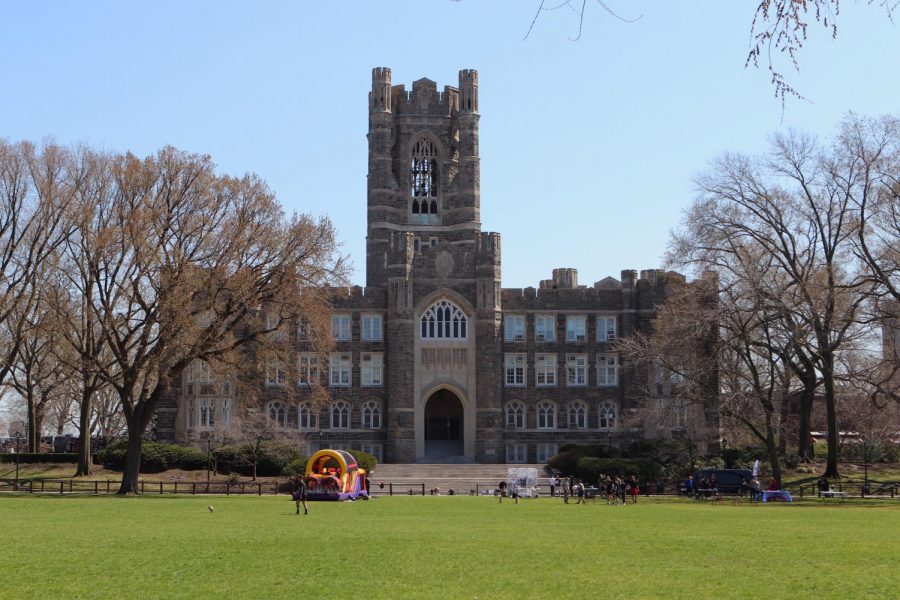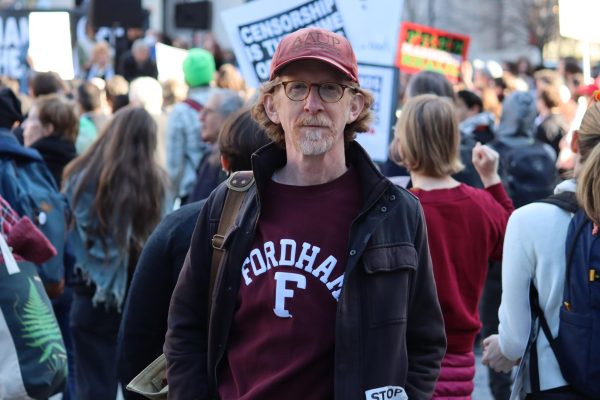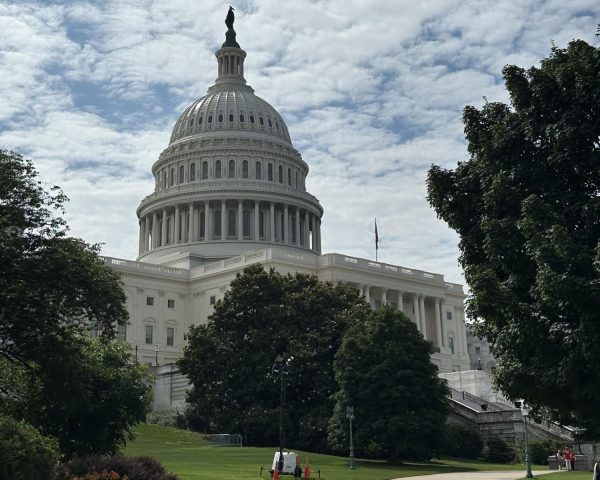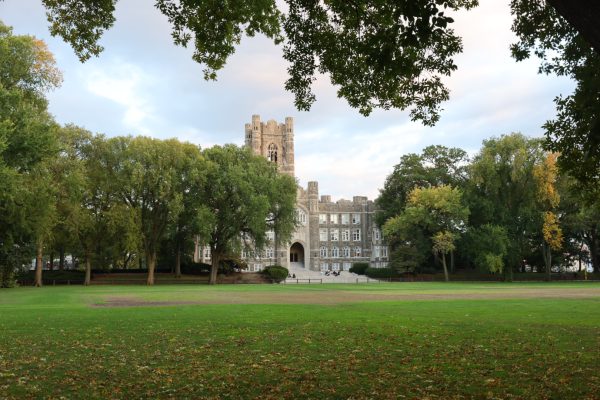Fordham Academic Departments Work to Incorporate Anti-Racism in Curricula
Discussions of racism and the importance of anti-racist action have been heighted this year following the global Black Lives Matter protests of 2020. The Fordham Ram has since covered numerous statements disavowing racism released by academic departments at Fordham in the fall semester. Many department heads described their plans to ensure their department plays a role in the continued dedication of Fordham University to social justice and standing against racism.
The curriculum goals that will likely affect all Fordham students regardless of major are those outlined by the Core Curriculum Committee. Christopher Dietrich, chair of the Core Curriculum Committee and program director for American Studies, stated that “the Core Curriculum Committee urges faculty teaching courses that have been approved for the American Pluralism requirement to fully incorporate course materials that meet the Core’s call to ‘afford students the opportunity to develop tolerance, sensitivities and knowledge of the following forms of American diversity: race, ethnicity, class, religion and gender’ … The Committee further recommends that departments that administer parts of the Core encourage their faculty to embrace teaching that incorporates critical engagement and self-reflection on questions of race, racism and anti-racism into their courses.”
Multiple academic departments that administer core courses have committed to offering courses that focus on social justice, including, but not limited to, the art history, history and English departments. This commitment consists, in many cases, of faculty evaluating previously offered courses in terms of diversity and working to offer students new courses that examine underexplored demographics. “Over the summer, we developed a new global introductory survey of art history (ARHI 1100) that includes classes that deal with the representation of race in Europe and mid-19th century US; African art and its long diaspora, along with more material on Asia and the Americas. The introductory survey is a required course for the major,” said Barbara Mundy, the art history department chair.
She added that the department has been offering more courses on Black and Asian art history for elective requirements and continues to update its current courses in order to ensure they reflect the importance of race and representation in art. “The major currently has a ‘global’ requirement, and as we revisit our major requirements in the coming year, we will certainly be looking at the place of race in the art history curriculum,” said Mundy.
The history department has also re-examined its curriculum. “Individually, faculty members have developed several new courses,” said Department Chair David Hamlin. “For example, we are adding a team-taught ICC on Racism and Anti-Semitism and an advanced disciplinary course on slavery in New York City. Faculty members are also setting up a reading group for anti-racist pedagogy, and we are hoping to fund a study of the history major in peer and aspirant institutions and how those majors may or may not address the issue.”
According to the English department chair, Mary Bly, the English department has been adjusting its coursework for years and has already required a course with the attribute Race and Social Justice for the Class of 2023 and beyond. This is in keeping with the English department’s goal to provide its students with “an awareness of the range of perspectives and aesthetic traditions within English literature, including ones previously considered marginal to the canon.”
The department has also released a proposed statement on anti-Asian Racism affirming Black-Asian solidarity and including a suggested reading list for those seeking to educate themselves on historical and contemporary anti-Asian discrimination. “We take seriously the need not just to declare our values,” said Bly, “but to actually use our voice to teach, even outside the classroom.”
The restructuring of many core courses will likely affect the curriculum of the philosophy and theology departments, both of which include required core courses and emphasis on cura personalis. Kathryn Kueny, director of the religious studies and Middle East studies programs, stated that the university “will be undergoing Core Curriculum changes over the next few years so those larger, structural changes will ultimately affect the contours of theology offerings and the [religious studies] program, as the two required courses we will draw from in theology will most likely be revamped further to reflect those core changes.
Beyond changes to Fordham’s core, Kueny said her department might see additional adjustments in the future. “A vast majority of theology courses that are also an integral part of the [religious studies] major already take up anti-racism issues from different angles and perspectives with their emphasis on justice, equity, liberation and diversity of experience.” Kueny explained that the religious studies program, in allowing students to explore their interests in the major, necessitates diversity, as students can focus on non-Western religious traditions or the intersection of religious studies and avenues of social justice.
Similarly, the American studies program requires that students experience coursework through the lens of inequalities in society. “The American studies program agrees that anti-racist teaching is crucial for the University,” said Dietrich, who also heads the department. “Deep analysis of questions of race and inequality are at the center of the curriculum for American Studies majors. This year, for example, our junior majors read and wrote about Walter Johnson’s “Broken Heart of America,” a St. Louis-based history that tells a narrative of the United States through the historical relationship between U.S. imperialism, the dispossession of indigenous Americans and anti-black racism.”
Chair of communications and media studies Amy Aronson described the numerous steps the department has taken to live up to the goals outlined in its earlier racial justice statement. “On the first day of classes this year, we unanimously passed a comprehensive departmental racial justice statement, drafted and revised during the summer months,” said Aronson. The actions taken by the department in line with this statement in the past year included examining required introductory courses for both the department and all offered majors by looking for the following: diversity of subject, relevance of course policies and assignments to pluralism and marginalization, the presence of underrepresented authors in course materials and inclusion of concepts of diversity and inclusion in offered courses. This audit was then analyzed for recommendations regarding curriculum development and courses.
The focus on anti-racism does not end with curriculum. According to Mundy, the art history department’s Visual Resources Curator Katherina Fostano and Assistant Professor Caitlin Beach are leading a discussion group titled “Reflections on Art and Race,” where art history students and faculty discuss texts about race, bringing in voices from outside of Fordham. The next upcoming department event, a webinar called “Creating Change Through the Arts” on May 5, will host Janet Dees, FCLC ’98, the curator of modern and contemporary art at the Block Museum of Art at Northwestern University.
In addition to the communications and media studies department’s curriculum revisions, the department has undertaken other steps to center diversity. “[We have made] significant progress on the complex task of reviewing and revising our Norms for Tenure and Promotion with an eye toward further recognizing and rewarding antiracist and social justice work and practices in teaching, research and/or service,” stated Aronson. “Toward this end, our Diversity, Equity and Inclusion Committee developed a sophisticated initial proposal for our faculty, incorporating research assistance from our Work/Study student workers on both campuses and outside resources provided on request by the Office of the Chief Diversity Officer.”
She went on to list other accomplishments of the department, including finalizing a partnership agreement with the Hispanic Information and Telecommunications Network for the department’s master’s program in public media. “As Chair, I am very proud of our accomplishments so far. This department is committed to persistent, substantive and accountable effort on anti-racism, equality and social justice,” said Aronson.
According to Associate Professor James Kim, who has previously spoken on panels about anti-Asian discrimination and launched a petition to institute an Asian American Studies program at Fordham, the English Department established a standing committee on Diversity and Social Justice in 2016, whose goal is to recruit new and support existing minority students and faculty, as well as centering social justice in general.
According to Bly and Kim, Crystal Broch Colombini, the director of the writing program, has been restructuring the department’s first-year writing program with equity in mind and will be launching the Teaching Racial Justice Initiative, “a yearlong series of events designed to promote anti-racist pedagogy in Comp I, Comp II and Texts and Contexts.”
The English department has also taken steps to include students in promoting an anti-racist campus. “The department now has a set of student-run teaching awards that specifically honors outstanding teaching that combats racism and advances the cause of social justice,” said Kim. “The teaching award is being administered by members of Alpha Chi Omicron, Fordham’s chapter of Sigma Tau Delta, the international honors society for students of English literature. Last I heard, the student organizers had received 35 nominations.”
Other departments continue to build on anti-racist statements and intentions seen earlier this year, including sociology and political science. “We in the sociology and anthropology department have been gratified by the recent university-wide efforts to address institutional racism, and several of us have taken active roles in the work undertaken in that direction,” said Matthew Weinshenker, chair-elect of the department of sociology and anthropology. “Not all of us are experts on race, but the struggle for civil rights and social justice are two pursuits with long heritages in our disciplines. On the subject of coursework, our highest priority for a few years now, in terms of personnel, has been to strengthen our faculty roster in the sociology of race. We hired a full-time faculty member in this area who joined Fordham this year, and with the support of the university, we hope to add more very soon.”
Robert Hume, Chair of the political science department, said the department is continuing to implement its earlier outlined plan and should have more to say around the end of the semester.
Though many have expressed that the university has a way to go on the road to anti-racism, it is undeniable that the demand for a focus on social justice from both faculty and students has led to significant changes in academics just this year. “Above all, it is crucial for students to continue to be vocal about their opinions regarding anti-racism and their education at Fordham,” said Dietrich.
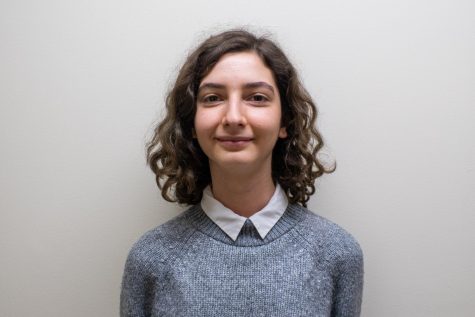
Hasna Ceran is a junior double majoring in economics and Middle East studies. She began by writing the USG Column for Volume 101 and served as an Assistant...



































































































































































































